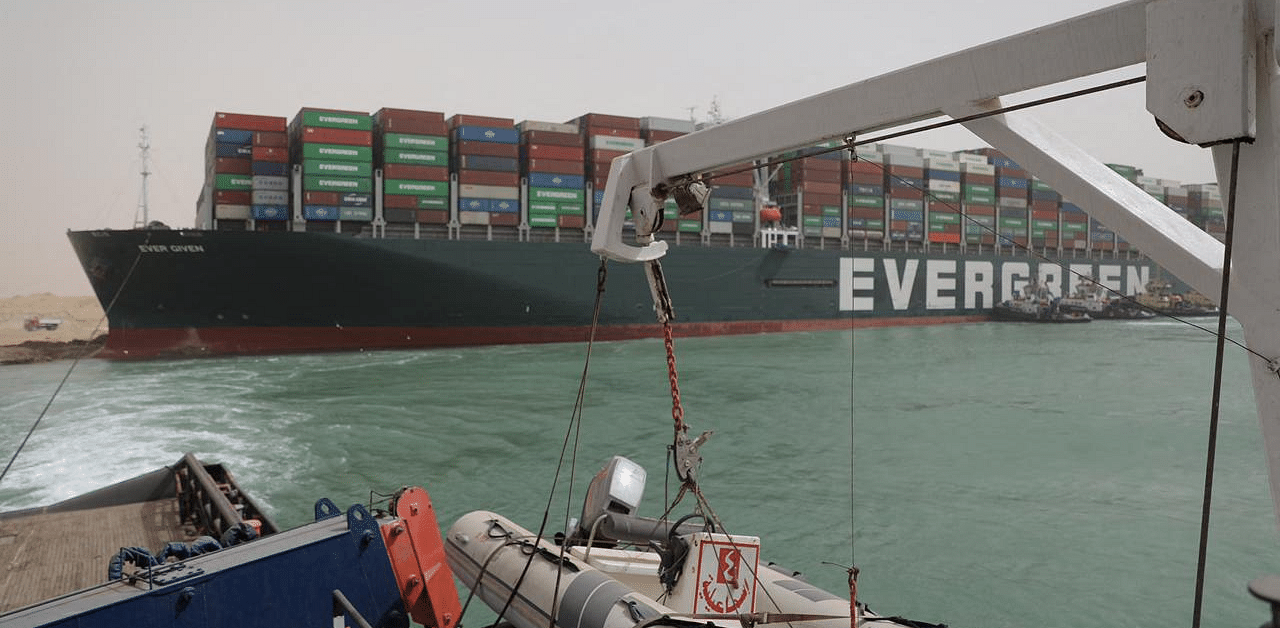
After one of the biggest container ships in the Suez Canal ran aground early Tuesday, oil prices climbed as much as 4 per cent on the back of fears of a supply shortage. However, trends on Wednesday morning suggest that the market may be over the blockade concerns.
The container ship is now stuck at a right-angle to the passage. This logjam has sent the shipping industry into a wreck, frenzied oil prices and affected trade.
The route is of major importance in the shipping of crude and refined products. Numerous cargo ships are now stuck and cannot go through the canal, which has forced them to take alternate routes. This seems to be the major reason for the climb in prices on Tuesday.
However, oil prices on Thursday skidded around 2 per cent as fuel demand concerns apparently re-emerged alongside fresh coronavirus pandemic lockdowns in Europe and other major economies, trimming overnight gains spurred by the Suez Canal grounding.
This fall is in line with the downslide seen in oil prices in the last two weeks as demand was hit in the US. They were on track to fall for a third consecutive week, before the Suez Canal blockade happened. In the backdrop of the coronavirus pandemic, oil prices have already been highly volatile. Brent crude prices have gone from $16 to $71 in the course of the year as demand was majorly hit by Covid-19.
"As much as those (Suez blockage and US demand) factors were there, it doesn't really erase the demand concerns questions that were asked earlier this week," Commonwealth Bank commodities analyst Vivek Dhar told Reuters. "And while the focus was on Europe, we also have rising Covid-19 cases in places like India and Brazil, developing economies which are really critical to the story for sustainable oil demand growth."
Logistical nightmare
Shipping experts are of the opinion this wedge could impact "anything you see in the stores". The canal that the Ever Given ship is blocking, is the route for 12 per cent of world trade. Crude oil, refined oil, liquified natural gas shipments make for 5-10 per cent of shipments globally.
The ship, which is as long as the Eiffel Tower, holds more than 20,000 shipping containers. Logistics experts are of the opinion it could impact everything from food, clothes, furniture, shoes, electronics and car parts, among many other things.
Shipping trackers told NBC that hundreds of ships are scrambling, many of them stuck in holding. The blockade is adding to the delivery time of goods being shipped from Asia to the US and back. If the ship remains blocked for any more time, which it might, alternate routes that the ships are forced to adopt could add as much as 10 days of extra time in logistics.
The world is watching as Egypt's Suez Canal Authority it was "temporarily suspending navigation" through one of the world's busiest shipping lanes.